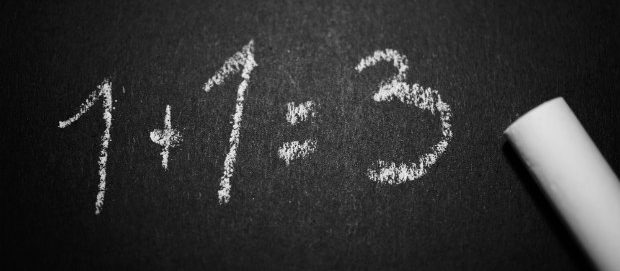
“I can’t BELIEVE I missed that problem! That was a careless error. Ugh!”
Sound familiar?
It’s understandably frustrating when students spend so much effort studying for a math test, making sure that they understand the math concepts and seeking help from teachers or tutors on concepts they don’t understand, only to make errors in arithmetic or basic algebra on their tests. It can leave them to feeling like math isn’t their thing, or that they are bad test takers.
So what is missing? What’s missing is that they are treating the concept errors as if they were more important than execution errors.
When a student misses a problem as a result of an execution error, there is not usually the same level of error analysis that there is with a concept error. Typically, students (and often teachers and tutors!) have a dismissive attitude toward execution errors. They’ll even give the student credit for getting the concept right, even if, in the end, the answer was wrong because the student added something incorrectly.
Life is not going to give students partial credit for knowing HOW to solve a problem, and then bungling the execution. For the vast majority of students, the skill of how to execute a task is going to be far more important than any particular math skill—especially once a student is in Algebra II and beyond. Rather than de-emphasizing and dismissing execution errors, students should be digging in to them and learning from them.
How can we do that? Any time a student makes an execution error on a problem, they should attempt to answer two questions:
1. What was the error, and what was the cause of the error?
Look for things like:
- Arithmetic errors
- Transcription errors (copying the next line of work down incorrectly)
- Skipped steps in work (writing out the steps you skipped might help you find it)
- Re-read the question…was the question answered as asked?
If you are struggling to find out why you missed the problem, see your teacher, a friend, or a tutor. The key is this: a mistake is a lesson. But if you don’t identify the lesson, life will give you more opportunities to learn the same lesson.
2. What behavior needs to change in order to avoid this error in the future?
Every error you make is avoidable, as long as you identify the behavior that needs to change. “Changed behaviors” DON’T include:
- Being “more careful” next time (how would a student know if they were being more or less careful)
- Doing the same process again (that isn’t a “change” in behavior)
- Slowing down (yes, this could be helpful, but it isn’t measurable or observable)
One way to know if a behavior is being changed is if an outside observer would see you doing something differently.
Changes in behavior should be tailored to the mistake made. For example:
Error: Student dropped a negative
Behavior change: Draw parentheses around negative numbers to highlight them
Error: Student entered a complicated expression on the calculator incorrectly
Behavior change: Write the expression out on paper before entering it into the calculator
Error: Student mixed up a 1 and a 7
Behavior change: Draw a horizontal line though 7’s to differentiate them.
Error: Misread the problem
Behavior change: Underline what the problem is asking you to do, and vocalize it.
Sometimes, finding a solution to an execution error can be challenging and take some creativity. (A tutor can often be helpful here!) It’s worth it when you consider the alternative…making the same errors over and over and over again throughout your academic career (and depending on the error, your professional career too!)
Sometimes the behavior change that you make doesn’t solve the problem. That’s OK too. Experiment and try something else next time!
But the point is this: an error is an opportunity to improve…but only if you take the time and effort to figure out what the lesson is. Don’t let “careless” errors slip away with a dismissive “Oh well!” Grab hold and take advantage of them!




